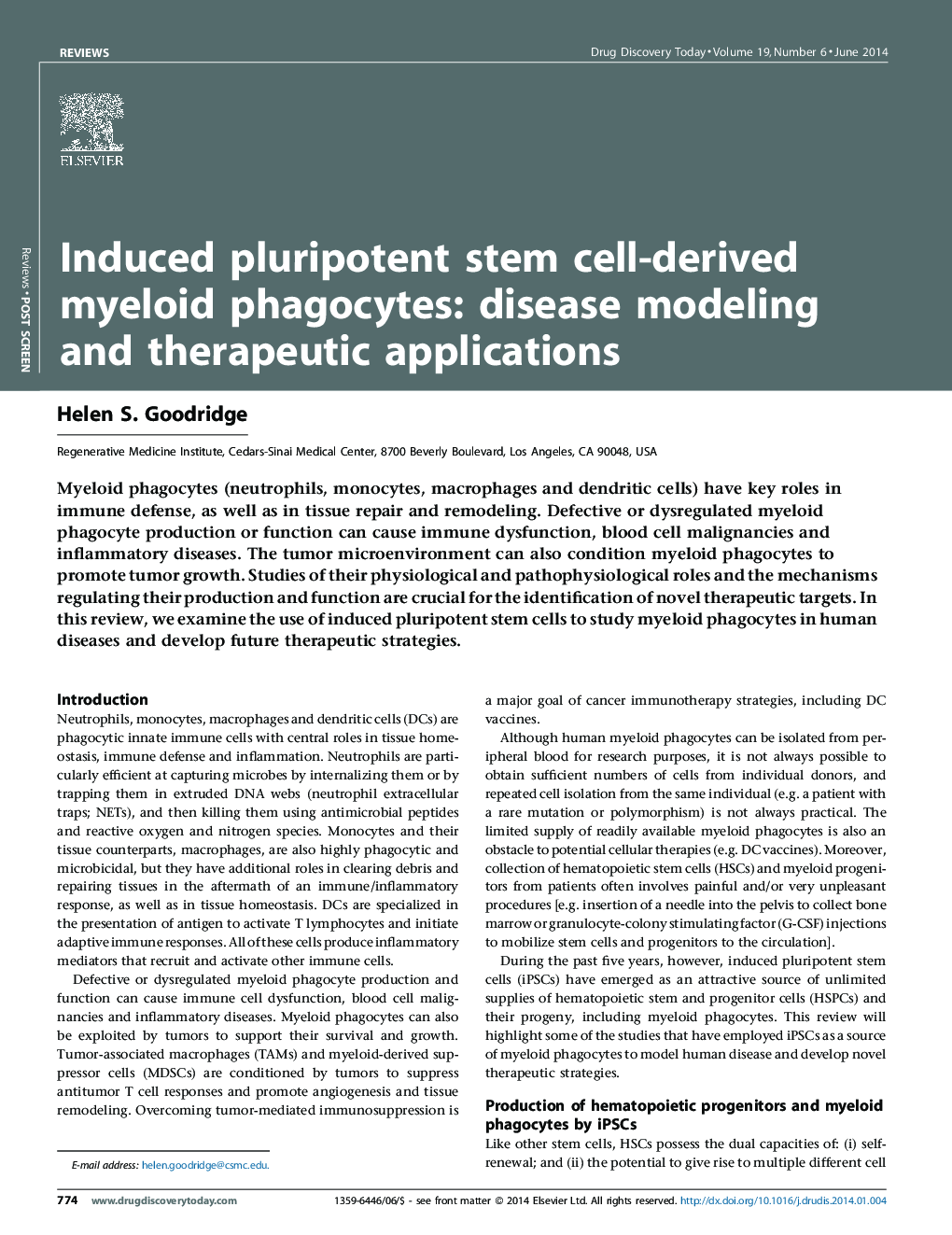| کد مقاله | کد نشریه | سال انتشار | مقاله انگلیسی | نسخه تمام متن |
|---|---|---|---|---|
| 2080046 | 1079928 | 2014 | 7 صفحه PDF | دانلود رایگان |
• We review the use of induced pluripotent stem cells (iPSCs) to make blood cells.
• iPSCs can be used to study human diseases with defects in myeloid phagocytes.
• iPSCs can be used to identify new therapeutic targets and screen drugs.
• iPSCs can also be used to produce blood cells for cellular therapy.
Myeloid phagocytes (neutrophils, monocytes, macrophages and dendritic cells) have key roles in immune defense, as well as in tissue repair and remodeling. Defective or dysregulated myeloid phagocyte production or function can cause immune dysfunction, blood cell malignancies and inflammatory diseases. The tumor microenvironment can also condition myeloid phagocytes to promote tumor growth. Studies of their physiological and pathophysiological roles and the mechanisms regulating their production and function are crucial for the identification of novel therapeutic targets. In this review, we examine the use of induced pluripotent stem cells to study myeloid phagocytes in human diseases and develop future therapeutic strategies.
Figure optionsDownload high-quality image (151 K)Download as PowerPoint slide
Journal: Drug Discovery Today - Volume 19, Issue 6, June 2014, Pages 774–780
